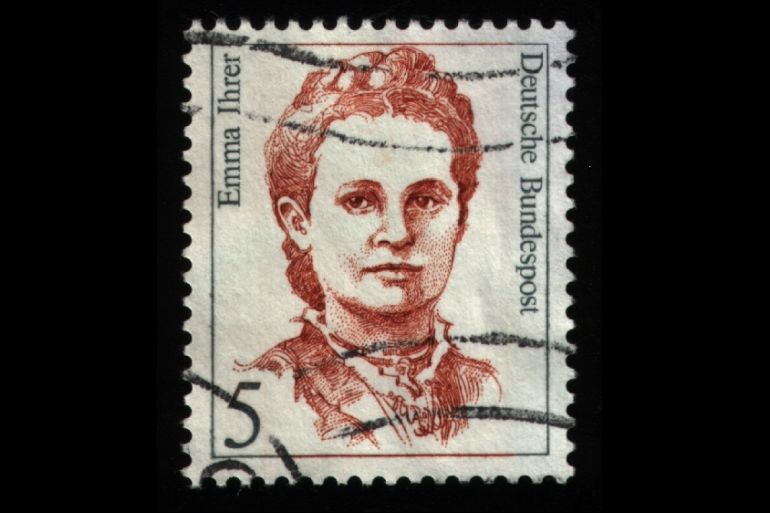Emma Ihrer: Why Google honours her today
The birthday of Emma Ihrer, seen as principal founder of Germany’s proletarian women’s movement, observed with a doodle.

Described as a “prolific writer” and hailed as the principal founder of Germany’s proletarian women’s movement, Emma Ihrer was born 166 years ago this Wednesday.
In her honour, Google is changing its logo in Germany to a doodle, or illustration, of her and other women from 19th century Germany.
Ihrer questioned some of the most fundamental societal assumptions of the time. This is her story.
Trade union leader
-
A working woman. Ihrer worked as a milliner, or hat maker, in Berlin, and this put her in close contact with the problems faced by working women at the time.
-
Moved by their plight, Ihrer took up her pen and became a prolific writer, authoring several papers and journals on the need for, and ways in which women could achieve, full equality.
-
Public speaker. She first spoke in public at a meeting on morality among workers and offered her views on how to improve worker morality. In 1883 she founded the Aid Society for Women Manual Workers with the aim of representing its members in the workplace, offering loans in emergencies and paying disability benefits.
-
Government resistance. In 1885 she and three other women founded the Society for Protection of Women Workers’ Interests. The society functioned as a support group to which doctors and lawyers offered their services free of charge.
-
Her work brought her into conflict with the government, which landed her in court on more than one occasion. The government tried to dissolve her society in 1886, but she continued transmitting her ideals of a better society through speeches delivered in various cities, towns, and villages.
-
She gained the support of the leadership of the Social Democratic Party and was regarded as one of the movement’s luminaries.
This woman has been fighting hate by removing neo-Nazi and far-right graffiti across Germany for 31 years. pic.twitter.com/XBjJJOzdkV
— AJ+ (@ajplus) May 21, 2017
Societal assumptions
- The value of women’s work. Ihrer questioned why women valued housework so highly when it was considered an inferior occupation by men.
-
She also critiqued “studies” that correlated the size of a person’s brain to their intelligence (supposedly “proving” that women were inferior). She famously stated that if that were the case, then whales could be sent to university instead.
-
Civic equality for women. In 1895 she called for a vote in parliament on granting full civic equality to women. She highlighted the divide between the bourgeois and proletarian female.
-
Ihrer was convinced that socialism would bring the social and economic emancipation of women.
-
Her hard-fought battles brought women’s rights to the forefront of political discussions in the early 20th century and led to several legislative victories.